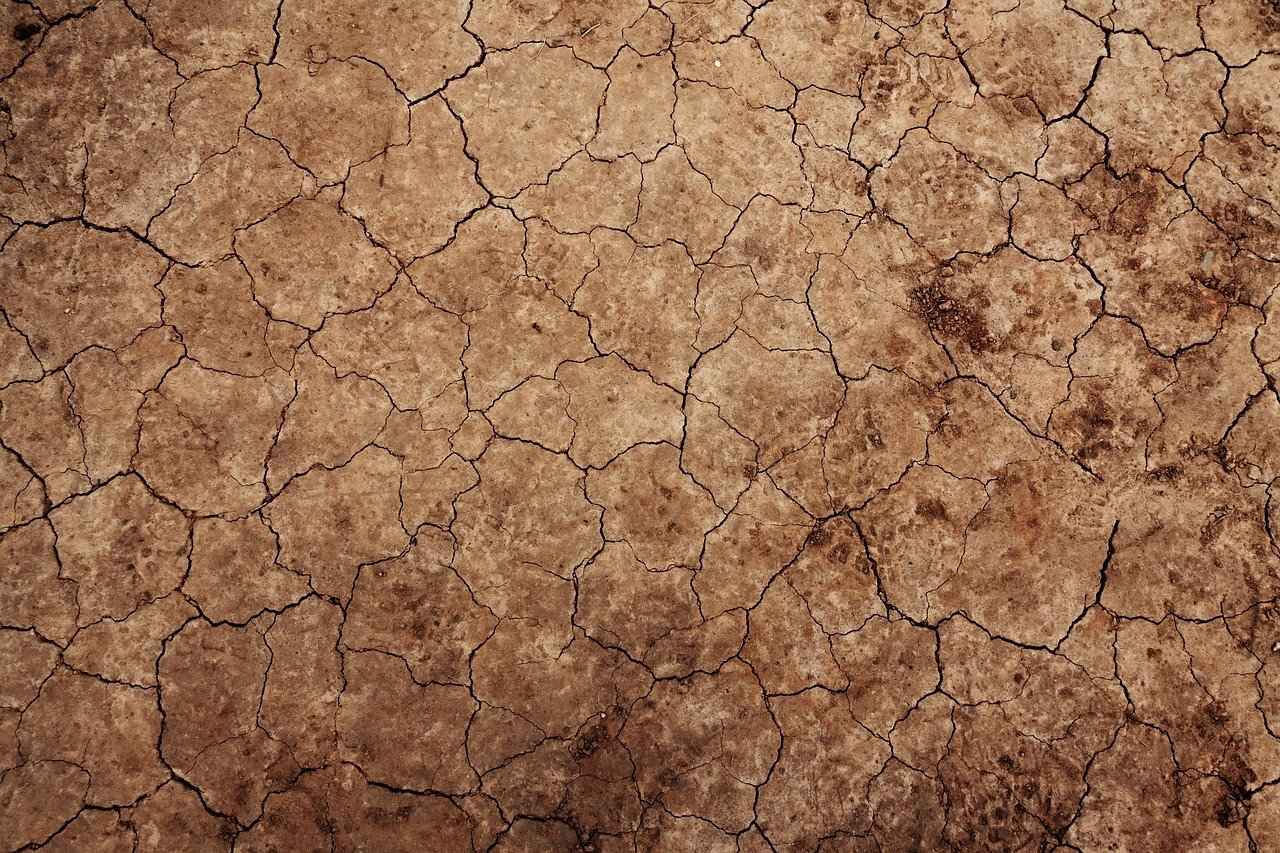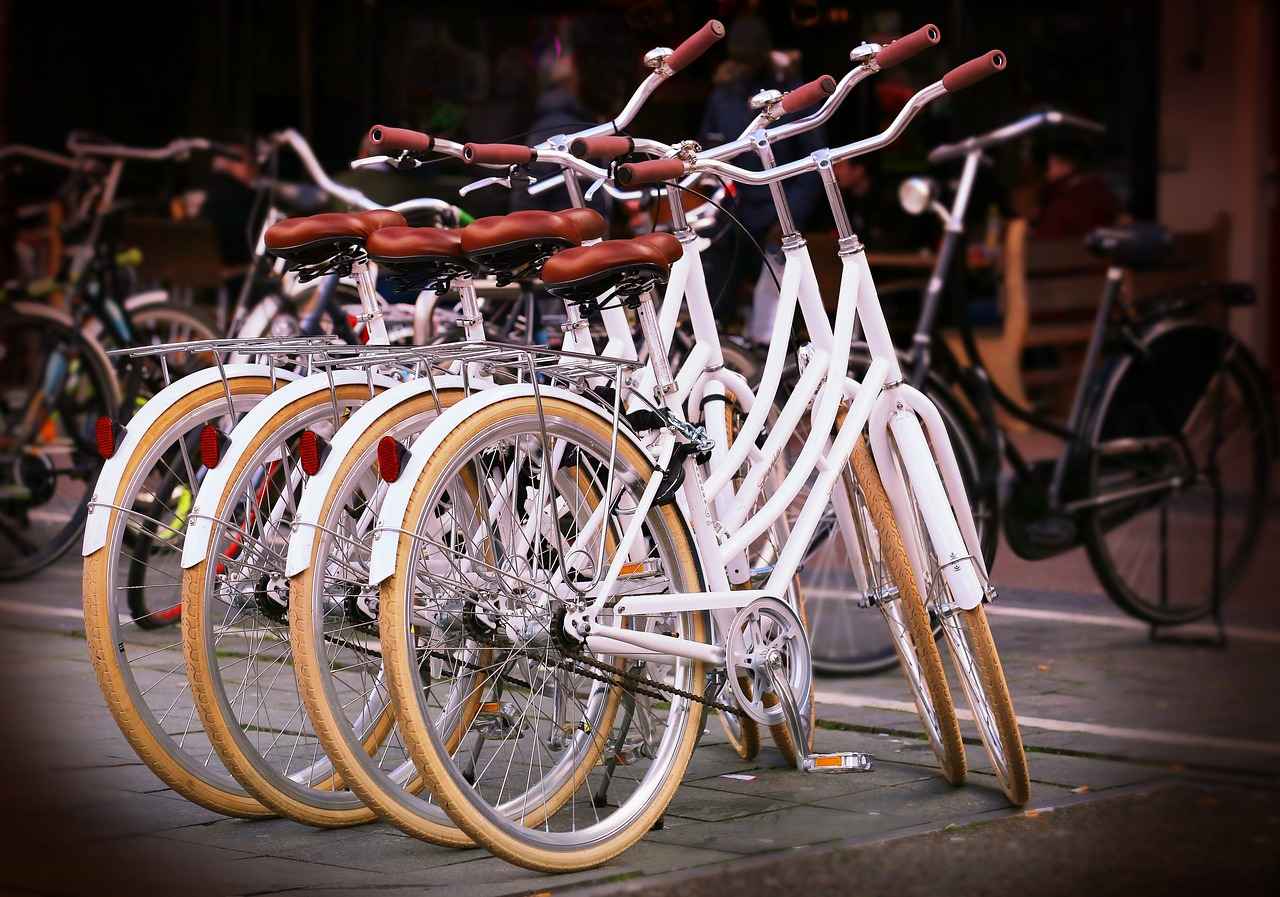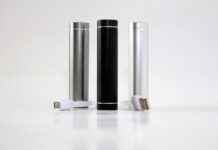This article delves into the evolution, technology, and future prospects of electric dirt bikes. It aims to provide valuable insights for enthusiasts, manufacturers, and potential buyers navigating the rapidly growing electric vehicle market.
1. The Rise of Electric Dirt Bikes
Electric dirt bikes have seen a remarkable surge in popularity, largely due to their eco-friendliness and the significant advancements in technology. This section explores the factors leading to their emergence and acceptance within the off-road biking community.
2. Key Features of Electric Dirt Bikes
For potential buyers, understanding the essential features of electric dirt bikes is crucial. Key aspects include:
- Battery Life
- Motor Power
- Weight
- Design
3. Performance Comparison: Electric vs. Gas Dirt Bikes
When comparing electric and gas dirt bikes, several key differences in performance, maintenance, and environmental impact emerge. This section provides insights into the pros and cons of both types.
4. Environmental Impact of Electric Dirt Bikes
Electric dirt bikes play a crucial role in reducing carbon footprints. This section discusses their environmental benefits and alignment with global sustainability efforts in transportation.
5. The Role of Technology in Electric Dirt Bikes
Technological advancements are reshaping the electric dirt bike landscape. Innovations such as regenerative braking, smart connectivity, and ride-enhancing features significantly improve user experience.
6. Popular Electric Dirt Bike Models
The market offers various electric dirt bike models catering to different riders. This section highlights some popular models, their features, and what makes them stand out in the industry.
7. Future Trends in Electric Dirt Biking
The future of electric dirt biking appears promising. This section explores emerging trends, including advancements in battery technology, design innovations, and shifts in consumer preferences.
8. Challenges Facing Electric Dirt Bikes
Despite their advantages, electric dirt bikes face several challenges. Issues like range anxiety, charging infrastructure, and competition from gas-powered bikes are discussed here.
9. The Electric Dirt Bike Community
The community surrounding electric dirt bikes is vibrant and growing. This section covers events, forums, and social media groups where enthusiasts share experiences and knowledge.
10. Tips for Choosing the Right Electric Dirt Bike
Selecting the perfect electric dirt bike involves careful consideration. Practical tips are provided to help potential buyers evaluate their options based on riding style and preferences.
11. The Future of Electric Dirt Bike Racing
Electric dirt bike racing is gaining traction, with the development of electric racing leagues shaping the future of competitive off-road biking.
12. Conclusion: Embracing the Electric Dirt Bike Revolution
In conclusion, electric dirt bikes represent a significant shift in the biking world. Summarizing the key points discussed, readers are encouraged to consider the benefits of this innovative mode of transportation.

1. The Rise of Electric Dirt Bikes
The Rise of Electric Dirt Bikes
In recent years, electric dirt bikes have emerged as a popular alternative to traditional gas-powered models, driven by a combination of technological advancements and a growing awareness of environmental issues. As more riders seek sustainable options, electric dirt bikes are becoming a prominent choice in the off-road biking community.
One of the primary factors contributing to the rise of electric dirt bikes is their eco-friendliness. Unlike gas bikes, electric models produce zero emissions, making them a cleaner option for outdoor enthusiasts who want to minimize their impact on the environment. This aligns with the global push towards sustainability and reducing carbon footprints.
Additionally, advancements in battery technology have significantly improved the performance and reliability of electric dirt bikes. Modern lithium-ion batteries offer longer ranges and shorter charging times, allowing riders to enjoy extended off-road adventures without the worry of running out of power. Furthermore, the development of solid-state batteries promises even greater efficiency and safety, paving the way for future innovations in the industry.
Moreover, electric dirt bikes are often quieter than their gas counterparts, which enhances the riding experience and reduces noise pollution in natural settings. This aspect appeals not only to riders but also to local communities and conservationists who advocate for peaceful outdoor environments.
As the technology continues to evolve, manufacturers are introducing models that cater to various skill levels and preferences, making electric dirt bikes accessible to a broader audience. With features such as adjustable power settings, lightweight designs, and advanced suspension systems, these bikes are designed to meet the needs of both casual riders and serious enthusiasts.
In conclusion, the rise of electric dirt bikes is a testament to the changing landscape of the off-road biking community. As technology advances and environmental awareness grows, these bikes are poised to play a significant role in the future of outdoor recreation.

2. Key Features of Electric Dirt Bikes
Key Features of Electric Dirt Bikes are essential for anyone considering a purchase in this exciting segment of the biking world. As the popularity of electric dirt bikes continues to rise, understanding their core attributes can significantly influence a buyer’s decision-making process. Below, we delve into the crucial aspects that define these innovative machines, focusing on battery life, motor power, weight, and design.
- Battery Life: The battery life of an electric dirt bike is paramount. Riders should consider the capacity measured in amp-hours (Ah) and how it translates into riding time. A bike with a higher capacity will typically offer longer rides, making it essential for off-road adventures.
- Motor Power: The motor power is another critical feature, usually measured in watts. A more powerful motor can provide better acceleration and speed, allowing riders to tackle challenging terrains with ease. It’s important to compare different motor specifications to find the right balance between power and efficiency.
- Weight: The weight of the electric dirt bike affects handling and performance. Lightweight models are easier to maneuver, especially on rugged trails, while heavier bikes may offer more stability at high speeds. Understanding the weight distribution can also play a role in the bike’s overall performance.
- Design: The design of an electric dirt bike impacts not only aesthetics but also functionality. Features like frame material, suspension system, and tire design contribute to the bike’s performance and rider comfort. A well-designed bike can enhance the overall riding experience.
By evaluating these key features, potential buyers can make informed decisions that align with their riding style and preferences. Electric dirt bikes offer a unique blend of technology and performance, making them an exciting option for both new and experienced riders.
2.1 Battery Technology
Battery technology is an essential component of electric dirt bikes, fundamentally influencing their performance, range, and overall riding experience. As the demand for electric vehicles grows, understanding the various types of batteries and their capabilities becomes increasingly important for riders and manufacturers alike.
Electric dirt bikes primarily utilize two types of batteries: lithium-ion and solid-state batteries. Each of these battery types has distinct characteristics that affect the bike’s performance and usability.
| Battery Type | Advantages | Disadvantages |
|---|---|---|
| Lithium-Ion |
|
|
| Solid-State |
|
|
Lithium-ion batteries are currently the most prevalent choice for electric dirt bikes. Their lightweight design and impressive energy density allow for a longer range and better performance on rugged terrains. However, they do come with certain drawbacks, such as higher costs and sensitivity to extreme temperatures, which can affect their efficiency.
On the other hand, solid-state batteries are emerging as a potential game-changer in the electric dirt bike market. These batteries promise enhanced safety due to their non-flammable nature and could offer higher energy densities, translating to longer rides without the need for frequent recharges. Although they are not yet widely available, ongoing research and development may soon bring them to the forefront of battery technology.
In conclusion, the choice of battery technology significantly impacts the performance and range of electric dirt bikes. As advancements continue in this field, riders can look forward to improved options that enhance their off-road experiences.
2.1.1 Lithium-Ion Batteries
Lithium-ion batteries have become the backbone of electric dirt bikes, revolutionizing the way enthusiasts experience off-road riding. Their lightweight design and impressive energy density make them a preferred choice for manufacturers and riders alike.
One of the most significant advantages of lithium-ion batteries is their long lifespan. Typically, these batteries can last for several years, providing consistent performance without the need for frequent replacements. This longevity not only reduces the overall cost of ownership but also contributes to a more sustainable riding experience.
Additionally, lithium-ion batteries offer fast charging capabilities, allowing riders to spend less time waiting and more time on the trails. Many modern electric dirt bikes equipped with these batteries can achieve a full charge in just a few hours, making them convenient for day trips and weekend adventures.
Another notable benefit is their low self-discharge rate. Unlike traditional lead-acid batteries, which can lose their charge quickly when not in use, lithium-ion batteries maintain their energy levels for extended periods. This means that riders can confidently store their bikes for weeks or months without worrying about battery depletion.
Furthermore, lithium-ion batteries are designed with advanced safety features. They are less prone to overheating and have built-in protection against overcharging, which enhances their reliability during intense rides. This safety aspect is crucial for off-road enthusiasts who often push their bikes to the limits.
In summary, the integration of lithium-ion batteries in electric dirt bikes has transformed the riding experience. Their lightweight nature, long lifespan, quick charging, and safety features make them an ideal choice for both casual riders and serious off-road adventurers.
2.1.2 Solid-State Batteries
Solid-state batteries are emerging as a groundbreaking technology in the realm of electric dirt bikes, promising to transform the riding experience significantly. Unlike traditional lithium-ion batteries, solid-state batteries utilize a solid electrolyte instead of a liquid one. This fundamental change offers several advantages that could enhance the performance, safety, and reliability of electric dirt bikes.
- Increased Energy Density: Solid-state batteries can store more energy in a smaller volume, translating to a longer range for electric dirt bikes. This means riders can enjoy extended adventures without the constant worry of recharging.
- Enhanced Safety: The use of solid electrolytes reduces the risk of leaks and fires associated with liquid electrolytes. This safety improvement is crucial for off-road riding, where rough terrains and impacts are common.
- Faster Charging Times: Solid-state batteries are expected to support quicker charging capabilities, allowing riders to get back on the trails faster. This convenience can make a significant difference during long rides.
- Longer Lifespan: With fewer degradation issues over time, solid-state batteries may last longer than their lithium-ion counterparts, providing better value for riders in the long run.
As manufacturers begin to adopt this technology, the potential benefits of solid-state batteries could lead to a new generation of electric dirt bikes that are not only more powerful but also safer and more efficient. This shift could attract a broader audience, including those who may have previously favored traditional gas-powered bikes.
In conclusion, the integration of solid-state batteries into electric dirt bikes represents an exciting advancement in the industry. With their numerous advantages, they hold the promise of enhancing the overall riding experience, making electric dirt bikes a more attractive option for both enthusiasts and newcomers alike.
2.2 Motor Specifications
The motor specifications are crucial elements that significantly impact the performance of electric dirt bikes. Understanding these specifications can help riders make informed decisions when selecting a bike that meets their needs.
Electric dirt bikes utilize various types of motors, each designed to deliver specific power outputs. The most common motor types include brushless DC motors and hub motors. Brushless DC motors are favored for their efficiency and durability, providing smooth acceleration and high torque. On the other hand, hub motors are integrated into the wheel hub, offering a compact design and reducing the overall weight of the bike.
When examining power outputs, it’s essential to consider the wattage of the motor. Higher wattage typically translates to greater speed and torque. For instance, a motor rated at 3000 watts can deliver impressive acceleration and maintain higher speeds on rugged terrains compared to a motor with a lower wattage. Additionally, torque is a critical factor, as it determines the bike’s ability to climb steep hills and navigate challenging obstacles.
Another vital aspect of motor specifications is the RPM (revolutions per minute). A higher RPM indicates that the motor can spin faster, contributing to increased speed. However, it’s important to balance RPM with torque, as too high an RPM might compromise the bike’s ability to handle tough off-road conditions.
In conclusion, the choice of motor specifications greatly influences the overall performance of electric dirt bikes. Riders should carefully evaluate the type of motor, power output, and torque to ensure they select a bike that aligns with their riding style and terrain preferences. With advancements in motor technology, riders can expect even more powerful and efficient options in the future.

3. Performance Comparison: Electric vs. Gas Dirt Bikes
Performance Comparison: Electric vs. Gas Dirt Bikes
When evaluating the performance of electric and gas dirt bikes, there are several critical factors to consider. Each type of bike has its own unique advantages and disadvantages that cater to different riding styles and preferences. This section delves into the key differences, focusing on aspects such as speed, acceleration, maintenance, and environmental impact.
| Feature | Electric Dirt Bikes | Gas Dirt Bikes |
|---|---|---|
| Speed | Instant torque allows for rapid acceleration. | Powerful engines provide consistent speed but may lack instant torque. |
| Maintenance | Lower maintenance due to fewer moving parts. | Higher maintenance needs, including oil changes and engine repairs. |
| Environmental Impact | No emissions, making them eco-friendly. | Produces emissions, contributing to air pollution. |
Speed and Acceleration: One of the most significant advantages of electric dirt bikes is their instant torque. Unlike gas bikes, which require a build-up of RPMs to achieve peak power, electric motors deliver power immediately. This feature allows riders to experience rapid acceleration, making electric bikes a thrilling choice for off-road adventures.
Maintenance and Cost Efficiency: Electric dirt bikes typically require much less maintenance than their gas counterparts. With fewer moving parts and no need for oil changes, the long-term costs associated with electric bikes can be significantly lower. Additionally, the cost of electricity is generally cheaper than gasoline, providing further savings for riders.
In conclusion, both electric and gas dirt bikes offer unique benefits, making the choice largely dependent on personal preferences and riding styles. As technology continues to advance, electric dirt bikes are likely to become even more competitive, offering enhanced performance and sustainability.
3.1 Speed and Acceleration
Speed and Acceleration are two of the most exciting aspects of electric dirt bikes, often catching the attention of both enthusiasts and newcomers. Unlike traditional gas-powered bikes, electric dirt bikes utilize electric motors that deliver instant torque. This unique feature allows riders to experience rapid acceleration from a standstill, providing a thrilling ride that can easily outpace many gas models.
The instant torque generated by electric motors means that power is available immediately, without the need for a throttle delay. This characteristic is particularly beneficial when navigating challenging terrains, where quick bursts of speed can be essential for maintaining balance and control. Riders can tackle steep inclines or tricky obstacles with confidence, knowing their bike can respond instantly to their commands.
In comparison, traditional gas bikes often require the rider to build up speed gradually, as the internal combustion engines typically deliver power more linearly. This can result in a less exhilarating experience, especially for those who crave the adrenaline rush that comes with rapid acceleration.
| Feature | Electric Dirt Bikes | Gas Dirt Bikes |
|---|---|---|
| Acceleration | Instant torque for rapid acceleration | Gradual power delivery |
| Speed | Potential for higher top speeds with advanced motors | Varies by engine size and tuning |
| Weight | Generally lighter due to fewer components | Heavier due to engine and fuel |
Moreover, advancements in battery technology and motor design are continually enhancing the performance of electric dirt bikes. With manufacturers focusing on optimizing power output and efficiency, riders can expect even better acceleration and speed in future models.
In conclusion, the combination of instant torque and innovative technology positions electric dirt bikes as formidable competitors in the world of off-road biking. As the market continues to evolve, these bikes are set to redefine the standards for speed and acceleration, making them a thrilling choice for adventure seekers.
3.2 Maintenance and Cost Efficiency
Electric dirt bikes have emerged as a game-changer in the off-road biking community, particularly when it comes to maintenance and cost efficiency. Unlike their gas-powered counterparts, electric models require significantly less upkeep, which translates to long-term savings for riders.
One of the most notable advantages of electric dirt bikes is their reduced maintenance needs. Gas bikes have complex engines that require regular oil changes, air filter replacements, and spark plug checks. In contrast, electric bikes operate using a simpler motor system, which means fewer moving parts and less wear and tear. This simplicity not only makes maintenance easier but also less frequent, allowing riders to spend more time enjoying their bikes rather than servicing them.
Moreover, the cost of fuel is another area where electric dirt bikes shine. While gas prices fluctuate and can be quite high, charging an electric bike is considerably cheaper. Depending on local electricity rates, the cost to fully charge an electric dirt bike can be less than a dollar, offering a stark contrast to the expense of filling a gas tank.
In addition to lower fuel costs, electric dirt bikes typically have longer lifespans for their components. The absence of a combustion engine reduces the risk of mechanical failures, which can be costly to repair. Riders can expect to save significantly on parts and labor over the lifespan of their bike.
To summarize, the maintenance and cost efficiency of electric dirt bikes make them an attractive option for both casual riders and serious enthusiasts. With lower fuel expenses and minimal maintenance requirements, they not only provide a more economical choice but also offer a more environmentally friendly alternative to traditional gas models.

4. Environmental Impact of Electric Dirt Bikes
Electric dirt bikes are not just a trend; they are a significant step towards a more sustainable future in off-road transportation. As the world grapples with the challenges of climate change, these innovative vehicles play a crucial role in reducing our carbon footprints. This section delves into the environmental benefits of electric dirt bikes and their alignment with global sustainability efforts.
- Reduction of Greenhouse Gas Emissions: Unlike traditional gas-powered dirt bikes, electric models produce zero tailpipe emissions. This means they do not release harmful pollutants into the atmosphere, significantly contributing to improved air quality.
- Lower Noise Pollution: Electric dirt bikes operate more quietly than their gas counterparts. This reduction in noise pollution is beneficial for wildlife and enhances the riding experience for enthusiasts who prefer a more peaceful environment.
- Energy Efficiency: Electric dirt bikes are generally more energy-efficient than gas bikes. They convert a higher percentage of electrical energy from the grid to power at the wheels, making them a smarter choice for eco-conscious riders.
- Alignment with Renewable Energy: As more riders charge their electric dirt bikes using renewable energy sources like solar or wind power, the overall environmental impact diminishes further. This synergy promotes a sustainable energy cycle.
- Support for Sustainable Practices: Many manufacturers are adopting sustainable practices in their production processes, using recyclable materials and minimizing waste, which enhances the overall environmental benefits of electric dirt bikes.
In conclusion, electric dirt bikes are paving the way for a greener future in the biking community. By embracing these vehicles, riders not only enjoy thrilling off-road adventures but also contribute to a more sustainable planet. As technology advances and the market continues to grow, the positive environmental impact of electric dirt bikes will only enhance their appeal.

5. The Role of Technology in Electric Dirt Bikes
The Role of Technology in Electric Dirt Bikes
As the electric dirt bike industry evolves, technological advancements are at the forefront of this transformation. Innovations such as regenerative braking, smart connectivity, and various ride-enhancing features are significantly improving the user experience and performance of these bikes.
Regenerative Braking
One of the most exciting developments in electric dirt bikes is regenerative braking. This technology allows the bike to recover energy while slowing down, converting kinetic energy back into stored energy in the battery. This not only extends the bike’s range but also enhances overall efficiency, making rides longer and more enjoyable.
Smart Connectivity
Another remarkable feature is smart connectivity. Many modern electric dirt bikes come equipped with Bluetooth and GPS capabilities, allowing riders to connect their devices for real-time data tracking. This includes monitoring battery levels, speed, and even navigation assistance, which enhances the riding experience and provides riders with valuable information at their fingertips.
Ride-Enhancing Features
Electric dirt bikes are also incorporating ride-enhancing features such as adjustable suspension systems and traction control. These technologies allow riders to customize their experience based on terrain and personal preference, ensuring a smoother and safer ride. Additionally, features like anti-lock braking systems (ABS) are becoming standard, further improving safety on challenging trails.
In conclusion, the integration of advanced technologies in electric dirt bikes is not just about improving performance; it’s about creating a more engaging and enjoyable experience for riders. As these innovations continue to develop, the future of electric dirt biking looks bright, promising new levels of excitement and sustainability in the sport.

6. Popular Electric Dirt Bike Models
In the ever-evolving world of electric dirt bikes, riders are presented with a plethora of options tailored to their unique needs and preferences. This section delves into some of the most popular electric dirt bike models currently available, highlighting their standout features and what makes them appealing to various types of riders.
- Zero FX
The Zero FX is known for its remarkable balance of power and agility. With a top speed of 85 mph and a range of up to 100 miles on a single charge, this model is perfect for both trail riding and urban commuting. Its lightweight frame and powerful motor provide an exhilarating riding experience, making it a favorite among enthusiasts.
- Stark Varg
For those seeking a high-performance option, the Stark Varg stands out with its impressive 22 kW motor, delivering rapid acceleration and a top speed of 80 mph. This model features advanced suspension systems and a customizable power output, catering to riders who crave versatility on various terrains.
- Razor Dirt Rocket MX650
The Razor Dirt Rocket MX650 is an excellent choice for younger riders or those new to dirt biking. With a maximum speed of 17 mph and a sturdy build, it offers a safe yet thrilling experience. Its rechargeable battery provides up to 40 minutes of continuous use, making it ideal for fun-filled outdoor adventures.
- Electric Motion EM 5.7
The Electric Motion EM 5.7 is designed for trial riders, featuring a lightweight design and exceptional maneuverability. It boasts a silent operation and a range of approximately 30 miles, allowing riders to enjoy trails without disturbing the environment. Its regenerative braking system enhances battery efficiency, making it a sustainable choice.
- Sur-Ron Light Bee X
The Sur-Ron Light Bee X offers an impressive blend of power and endurance. With a peak power of 22 kW and a range of up to 60 miles, this model is designed for serious off-road enthusiasts. Its robust construction and advanced suspension system ensure stability and comfort on rugged terrains.
Each of these models showcases the innovation and capabilities that electric dirt bikes bring to the riding community. From casual riders to seasoned professionals, there is an electric dirt bike model to suit every preference and skill level.

7. Future Trends in Electric Dirt Biking
The future of electric dirt biking is indeed bright and filled with exciting possibilities. As the demand for environmentally friendly transportation options continues to rise, electric dirt bikes are poised to become a significant part of the off-road biking landscape. This section delves into the emerging trends that are shaping the future of electric dirt biking, highlighting advancements in battery technology, innovative designs, and evolving consumer preferences.
One of the most notable trends is the rapid evolution of battery technology. Manufacturers are investing heavily in research and development to create batteries that are not only more efficient but also lighter and longer-lasting. For instance, the transition from traditional lithium-ion batteries to solid-state batteries is gaining momentum. These new batteries promise enhanced safety, increased energy density, and faster charging times, significantly improving the riding experience.
In addition to battery advancements, design innovations are also playing a crucial role in the future of electric dirt biking. Manufacturers are focusing on creating lighter frames and more aerodynamic designs, which enhance performance and handling. The incorporation of smart technology, such as ride-enhancing features and real-time performance monitoring, is becoming more prevalent, allowing riders to customize their experience.
Furthermore, shifts in consumer preferences are driving the market forward. As more riders become environmentally conscious, the demand for electric options is increasing. Consumers are looking for bikes that not only deliver high performance but also align with their values of sustainability. This trend is leading manufacturers to prioritize eco-friendly materials and production processes.
In conclusion, the future of electric dirt biking is characterized by rapid advancements in technology and a growing community of environmentally conscious riders. As battery technology improves, designs become more innovative, and consumer preferences shift, electric dirt bikes are set to revolutionize the off-road biking experience.

8. Challenges Facing Electric Dirt Bikes
Electric dirt bikes have emerged as a promising alternative to traditional gas-powered models, offering numerous benefits such as environmental sustainability and lower operating costs. However, despite these advantages, they are not without their challenges. This section delves into the primary issues that electric dirt bikes currently face, including range anxiety, the need for improved charging infrastructure, and the ongoing competition with gas-powered bikes.
- Range Anxiety: One of the most significant concerns for potential electric dirt bike users is range anxiety. Riders often worry about the limited distance that electric bikes can travel on a single charge compared to their gas counterparts. While advancements in battery technology are underway, many electric models still struggle to provide the same range as traditional bikes, leading to hesitance among potential buyers.
- Charging Infrastructure: The availability of charging stations is another critical factor affecting the adoption of electric dirt bikes. Unlike gas stations, which are widely accessible, charging stations for electric bikes are still relatively scarce, particularly in rural or off-road areas. This lack of infrastructure can deter riders from venturing too far from home, limiting their riding experiences.
- Competition from Gas-Powered Bikes: Despite the growing popularity of electric dirt bikes, they still face stiff competition from gas-powered models. Many riders favor gas bikes for their proven performance, longer range, and established support networks. Additionally, gas bikes often have lower upfront costs, making them more appealing to budget-conscious consumers.
In conclusion, while electric dirt bikes present a revolutionary shift in the off-road biking landscape, overcoming challenges such as range anxiety, charging infrastructure, and competition from gas-powered bikes is essential for their widespread acceptance and success. Addressing these issues will not only enhance the riding experience but also contribute to a more sustainable future in off-road biking.

9. The Electric Dirt Bike Community
The Electric Dirt Bike Community is a dynamic and expanding network of enthusiasts who share a passion for off-road electric riding. This community is not just about the bikes themselves; it’s about the experiences, knowledge, and camaraderie that come with them. In this section, we will delve into various aspects of the electric dirt bike community, including events, forums, and social media groups where riders can connect and share their love for these innovative machines.
One of the most exciting ways for riders to engage with one another is through events. Many local and national gatherings focus on electric dirt biking, offering opportunities to test new models, participate in races, and learn from industry experts. These events often feature workshops and demonstrations, allowing participants to gain hands-on experience and insights into the latest technologies and riding techniques.
- Local Meetups: Many cities host regular meetups where riders can come together to share tips, organize group rides, and discuss their favorite trails.
- Competitions: Electric dirt bike races are becoming increasingly popular, showcasing the capabilities of these machines and fostering a sense of community among competitors.
- Trade Shows: Major trade shows often feature electric dirt bikes, giving enthusiasts a chance to see the latest models and innovations up close.
Online forums and social media groups also play a crucial role in building the electric dirt bike community. Websites such as Reddit and specialized forums allow riders to share their experiences, ask questions, and exchange advice. These platforms foster discussions on various topics, from technical issues to riding strategies and customization options.
Social media platforms like Facebook and Instagram have numerous groups dedicated to electric dirt biking. These groups provide a space for members to post photos of their rides, share videos, and connect with other enthusiasts worldwide. The vibrant exchange of ideas and experiences helps to grow the community and attract new riders.
In conclusion, the electric dirt bike community is a thriving ecosystem that continues to grow as more people discover the benefits of electric off-road riding. Through events, online forums, and social media, riders can connect, share their passion, and contribute to the future of this exciting sport.

10. Tips for Choosing the Right Electric Dirt Bike
Selecting the perfect electric dirt bike requires a thorough understanding of various factors that can significantly impact your riding experience. This section aims to provide practical tips to assist potential buyers in evaluating their options based on their unique riding style and preferences.
- Define Your Riding Style: Consider whether you will be using the bike for casual rides, competitive racing, or rugged off-road adventures. Each riding style demands different specifications and features.
- Assess Battery Life: The battery life is crucial for long rides. Look for models with sufficient range to match your intended usage, ensuring you won’t be left stranded.
- Motor Power: Evaluate the motor’s power output, which directly affects speed and torque. A more powerful motor is essential for challenging terrains.
- Weight and Build: The weight of the bike can influence maneuverability and control. Ensure the bike’s build quality is robust enough for your intended riding conditions.
- Suspension and Tires: Good suspension and appropriate tires are vital for handling rough terrains. Look for bikes with adjustable suspension settings and durable, off-road tires.
- Brand Reputation: Research brands known for quality and reliability. Read reviews and seek recommendations from experienced riders to ensure you choose a reputable manufacturer.
- Test Ride: If possible, take the bike for a test ride. This firsthand experience will give you insights into comfort, handling, and overall performance.
- Consider Maintenance Needs: Electric bikes generally require less maintenance than gas models, but it’s wise to understand the specific maintenance requirements of the model you’re considering.
- Check for Warranty: A good warranty can provide peace of mind. Ensure the bike comes with a comprehensive warranty covering major components.
- Budget Considerations: Set a budget that includes not only the purchase price but also potential accessories, maintenance, and charging equipment.
By carefully considering these factors, you can make a more informed decision and select an electric dirt bike that aligns perfectly with your riding style and preferences.

11. The Future of Electric Dirt Bike Racing
Electric dirt bike racing is rapidly gaining traction in the world of competitive sports. With a focus on sustainability and innovation, this exciting segment is transforming the landscape of off-road biking. The emergence of electric racing leagues has created a unique platform for riders and manufacturers to showcase their advanced technology and skills. This section delves into the development of these leagues and their impact on the future of competitive off-road biking.
As the demand for eco-friendly alternatives increases, electric dirt bike racing is evolving to meet the needs of both competitors and enthusiasts. Unlike traditional gas-powered bikes, electric models offer instant torque and quieter operation, making them appealing for racing. This shift not only enhances the racing experience but also aligns with global efforts to reduce carbon emissions.
In recent years, several electric racing leagues have been established, paving the way for a new generation of riders. These leagues focus on innovation and technology, featuring races that highlight the capabilities of electric dirt bikes. With events designed to test speed, agility, and endurance, riders are encouraged to push the boundaries of what electric bikes can achieve.
Moreover, the integration of advanced technologies such as smart connectivity and regenerative braking is further enhancing the racing experience. These features not only improve performance but also provide valuable data to riders, allowing them to optimize their strategies during races.
As electric dirt bike racing continues to grow, it is attracting attention from manufacturers, sponsors, and fans alike. The potential for high-profile events and increased media coverage is set to elevate the sport, making it a significant player in the broader racing community. In conclusion, the development of electric racing leagues is shaping an exciting future for competitive off-road biking, where sustainability and technology go hand in hand.

12. Conclusion: Embracing the Electric Dirt Bike Revolution
In the ever-evolving landscape of transportation, electric dirt bikes are carving out a niche that is hard to ignore. As we explore the implications of this revolutionary mode of transport, it becomes evident that their impact is profound and multifaceted. First and foremost, electric dirt bikes are not just a trend; they signify a fundamental shift towards more sustainable and environmentally friendly riding options. With increasing concerns about climate change and the need for reduced emissions, these bikes offer a viable alternative to traditional gas-powered models.
Throughout this article, we have examined various aspects of electric dirt bikes, from their advanced battery technologies to their impressive performance metrics. The advantages of instant torque and reduced maintenance costs are compelling reasons for riders to make the switch. Furthermore, the ongoing advancements in technology, such as smart connectivity and regenerative braking, enhance the overall riding experience, making these bikes not only efficient but also enjoyable.
Moreover, the growing community of electric dirt bike enthusiasts plays a crucial role in promoting this innovative mode of transportation. With events, forums, and social media platforms dedicated to sharing experiences and knowledge, the culture surrounding electric dirt biking is vibrant and supportive.
In summary, electric dirt bikes represent a significant leap forward in the biking world, combining performance, sustainability, and community engagement. As we look to the future, it is essential for potential buyers and enthusiasts to consider the numerous benefits that come with this shift. By embracing electric dirt bikes, riders not only contribute to a greener planet but also enjoy a thrilling and modern riding experience that is sure to redefine off-road adventures.
Frequently Asked Questions
- What are the main benefits of electric dirt bikes?
Electric dirt bikes offer numerous advantages, including eco-friendliness, lower maintenance costs, and impressive acceleration. They provide a quieter ride, allowing for a more immersive experience in nature while reducing your carbon footprint.
- How long does the battery last on an electric dirt bike?
The battery life of electric dirt bikes can vary significantly based on the model and riding conditions. Generally, you can expect anywhere from 30 to 100 miles on a single charge. Factors like terrain, rider weight, and riding style will influence this range.
- Are electric dirt bikes suitable for beginners?
Absolutely! Many electric dirt bikes are designed with user-friendly features that make them ideal for beginners. Their instant torque allows for smooth acceleration, making it easier to control, especially for new riders.
- What is the difference between lithium-ion and solid-state batteries?
Lithium-ion batteries are widely used due to their lightweight and long lifespan, while solid-state batteries are emerging as a safer and more efficient alternative, offering higher energy density and potentially longer ranges in the future.
- Can electric dirt bikes handle rough terrain?
Yes! Many electric dirt bikes are built to tackle rough terrains with ease. Their powerful motors and robust designs allow them to perform well on hills, mud, and rocky paths, providing an exhilarating off-road experience.














